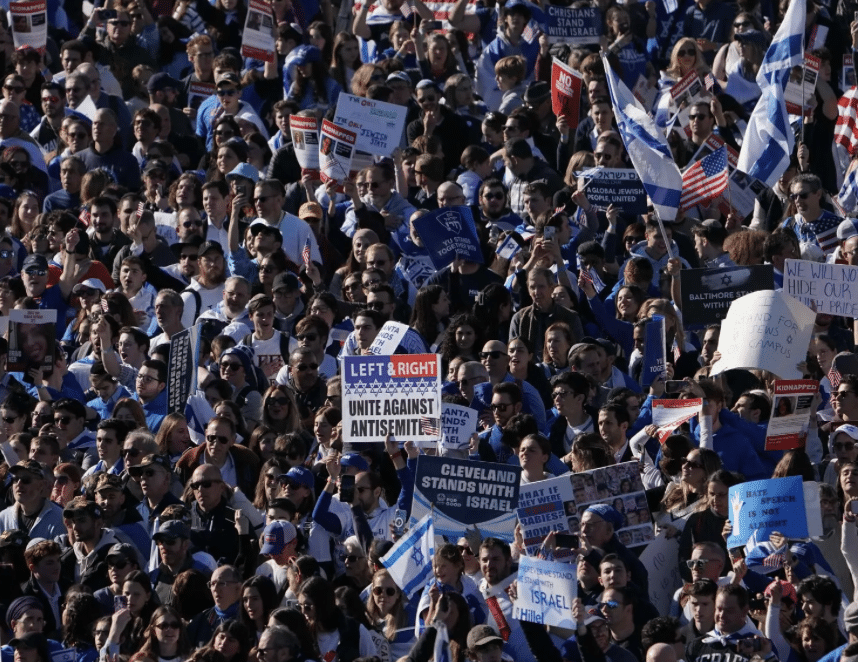[From a New York Times Op-ed by Charles M. Blow:]
Taking a position against the killing of civilians — such as Hamas’s Oct. 7 terror attack and the Israeli military’s operations in Gaza — is relatively easy. It gets harder when considering support for or opposition to the overall prosecution of the war, including the growing calls for a cease-fire. And when the aperture is widened from the particulars of the current violence to the history of the broader conflict, the divergence of opinions becomes even more stark and complicated.
A few weeks ago, I interviewed several pro-Palestinian activists and scholars in America. Almost all of them described themselves as anti-Zionist, but in our conversations, all of them also condemned antisemitism. This week, I turned to Jonathan Greenblatt, the chief executive of the Anti-Defamation League — whom I spoke to soon after he appeared at Tuesday’s March for Israel that drew tens of thousands of people to the National Mall — who sees anti-Zionism, by definition, as antisemitism. He told me, “Zionism is fundamental to Judaism.” He believes that claiming to be anti-Zionist but not antisemitic is like someone saying in 1963 that “I’m against the civil rights movement, but I’m also against racism.”
{The op-ed continues]
When I told Greenblatt that none of my interviewees gave a direct “yes” to the right-to-exist question, he said that was “almost indescribably offensive” because he connects any hesitation on the question to historical antisemitism and a denial of the Jewish people’s right to self-determination.
[Read the entire Nov. 15, 2023 New York Times op-ed by Charles M. Blow]

